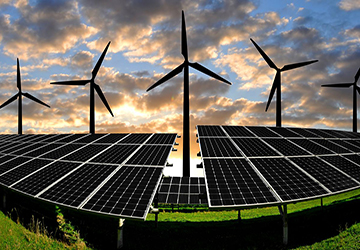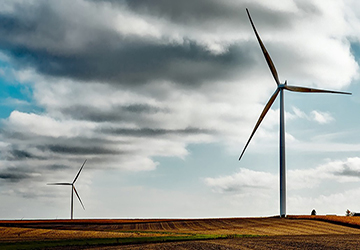Introduction
Finding solutions to reduce one's overall energy consumption expenditures while the price of energy remains high should be of the utmost importance to both private persons and commercial enterprises. It is possible to generate large cost savings by concentrating on energy efficiency, embracing renewable energy alternatives, putting effective conservation practises into place, and maximising one's ability to optimise one's utility bills. In this piece, we will discuss a variety of methods for cutting costs associated with energy consumption making it a helpful read.

1. Improve Our Overall Energy Efficiency
Increasing a building's energy efficiency is one of the most productive ways to cut down on the money spent on energy. To get started, you should have an energy audit done so that you can find the places where energy is being wasted. To cut down on heating and cooling costs, air leaks around windows and doors should be sealed, insulation should be added to walls and attics, and energy-efficient windows should be installed. It is important to replace old appliances and lighting fixtures with newer, more energy-efficient models, such as those that have earned the ENERGY STAR certification. When people aren't using their lights or electronic gadgets, encourage them to turn them off and disconnect them. If these steps are taken in to consideration at large then maximum energy could be saved.
2. Embrace Alternative and Renewable Sources of Energy
The use of renewable sources of energy is an excellent long-term approach for reducing overall expenditures on energy. It may be beneficial to generate electricity or heat water by contemplating the installation of solar panels on rooftops or the use of solar water heating systems. Further reducing reliance on traditional energy sources can be accomplished by investigating the viability of geothermal and/or wind energy generation technologies, as well as small wind turbines. Even while the preliminary expenditure might be significant, the potential long-term cost savings from decreased or even eliminated utility expenditures might be tremendous.
3. Put into place efficient methods of environmental preservation
Saving money on energy bills is significantly facilitated by conservation efforts. It is important to stress the significance of energy-saving behaviours such as turning off lights, setting thermostats to suitable temperatures, and making use of natural light wherever it is available in order to foster a culture of energy-conscious behaviour. Fixing leaks and installing equipment that save water are both great ways to encourage careful water use. In order to educate colleagues or family members about the benefits of conservation, it is important to emphasise how making even minor adjustments to one's routine can lead to large cost savings over the course of time.
4. Reduce Your Monthly Bills for Utilities
When it comes to cutting spending on energy, one of the most important steps is to examine and improve one's utility bills. Examine your monthly utility bills on a consistent basis in order to spot any unusual trends or occurrences in your energy consumption. If time-of-use or peak-demand pricing plans are available, you should seriously consider enrolling in one of them because it will allow you to take advantage of cheaper rates during off-peak hours. Get in touch with your local utility company to learn more about any cost-cutting programmes, rebates, or incentives that may be offered for reducing energy consumption. Compare the rates offered by several energy providers to ensure that you are receiving the best deal possible.

5. Replace Old Appliances with More Energy-Efficient Models
Investing in newer, more energy-efficient equipment can result in significant financial savings on one's monthly energy utility bills. When it comes time to replace your outdated home appliances, look for models that are built to be more energy efficient, meaning they use less gas or electricity. Look for appliances that have the ENERGY STAR designation, as this indicates that they have met high requirements for energy efficiency.Considering that home appliances like refrigerators, dishwashers, washing machines, and air conditioners can each account for a sizeable amount of your overall energy use, making an investment in solutions that are more energy-efficient can save money on energy cost over the long run.
6. Make Use of Forward-Thinking Technology
Utilisation of intelligent technologies can assist in improving energy efficiency and lowering costs. Install programmable thermostats, which allow for the temperature settings to be automatically adjusted based on the schedules of people using the space. Make use of smart power strips to stop energy from being wasted by gadgets that are set to standby mode. Installing timers or motion sensors to manage the lighting in areas that are used infrequently is a good idea. The use of intelligent technology not only makes life easier but also helps reduce overall energy consumption.
7. Inform and engage those around you.
Efforts to reduce financial burdens caused by rising energy prices should not be undertaken singly. It is important to educate and involve others in energy-saving practises, whether they be employees, family members, or tenants. To create awareness about the importance of energy efficiency and conservation, you could hold training sessions or workshops. In order to collect ideas for more energy-saving measures, it is important to encourage open communication and put recommendation systems into place. It is possible to realise more significant cost savings and create a cleaner future by encouraging a common commitment to cutting energy consumption.
Conclusion
To save money on energy cost, one must take a multipronged approach that places a premium on energy conservation, the utilisation of renewable energy sources, energy efficiency, and the optimisation of one's utility bills. Individuals and businesses are able to significantly cut their energy costs if they improve their energy efficiency, adopt renewable energy solutions, put effective conservation practises into place, optimise their utility bills, upgrade to energy-efficient appliances, utilise smart technology, and involve others. Taking these actions will not only result in significant financial savings, but it will also contribute to a future that is more sustainable and friendlier to the environment.
